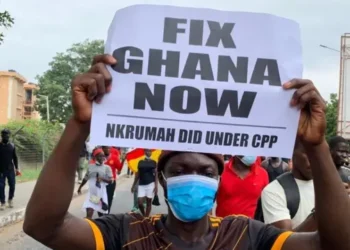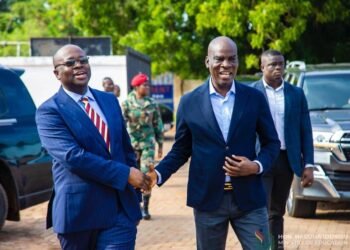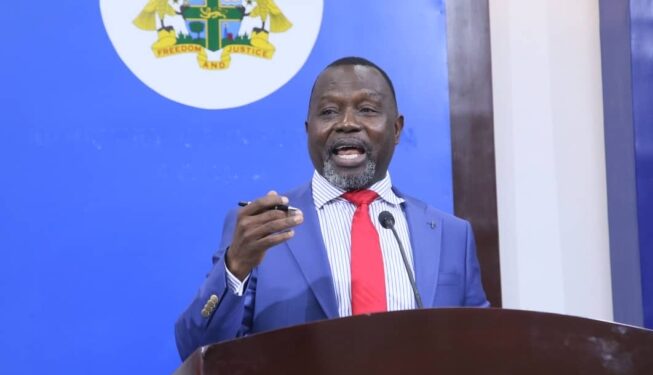Protests are a vital component of any functioning democracy as they provide a means for citizens to express their views, challenge authority, and demand change.
In democratic societies, the right to protest is protected by fundamental freedoms such as speech and assembly, making it a key tool for civic participation.
Accordingly, while remarking on the arrest of anti-Galamsey protesters, Prof. Kwaku Azar Asare stated that protests and the struggle to survive have been the lifeblood of Ghana’s sociopolitical evolution.
He emphasized that this relentless force is deeply woven into the fabric of Ghana’s development.
“Whether in the resistance against colonization, the bold fight for independence, or the post-independence battles for economic justice and democratic governance, aluta has been the engine driving our march toward political accountability and social progress”.
“From the early days, the state’s response to this enduring spirit has swung between accommodating the people’s demands and brutally suppressing them. This constant tension between civic activism and state power reflects a historical struggle for the soul of the nation”.
Prof. Kwaku Azar Asare
Prof. Kwaku Azar Asare highlighted various protests, or “aluta,” that have shaped Ghana’s history.
He cited the fierce resistance to British domination between 1820 and 1900, including notable conflicts such as the Battle of Nsamankow, where Ghanaians valiantly defended their land and sovereignty.
He also referenced the Aborigines’ Rights Protection Society, formed in 1897, which organized protests and petitions to resist colonial land expropriation policies, securing an early victory for indigenous land rights.
Prof. Asare further pointed to the 1948 Accra Riots, sparked by the killing of three World War II veterans during their protest for unpaid benefits.
Their deaths, according to Prof. Asare, ignited a broader revolt, with Accra and other regions rising up against British rule.
Additionally, he listed Nkrumah’s “Positive Action” campaign of the 1940s and 1950s, where Osagyefo mobilized the masses through strikes, boycotts, and civil disobedience under the powerful slogan, “Self-Government Now.”
Ghanaians “Aluta” For Their Rights
Furthermore, Prof. Kwaku Azar Asare highlighted the protests against Osagyefo’s regime from 1960 to 1964, where opposition groups and students organized demonstrations in response to economic mismanagement, corruption, and Osagyefo’s increasing hold on power.
He further mentioned the student-led protests during the military rule of the 1970s and 1980s. Amidst economic instability and authoritarian governance, students took to the streets, contributing to the pro-democracy movements that eventually led to civilian rule in 1993.

Additionally, Prof. Asare referenced the ‘Kume Preko’ protest of 1995, one of the largest in Ghana’s history, where opposition forces mobilized against severe economic hardships, marking a significant moment of public dissent.
“Dumsor Must Stop (2014): Frustrated by chronic power outages, Ghanaians rallied under the “Dumsor Must Stop” banner, demanding an end to the energy crisis. [And] #FixTheCountry Movement (2021): What began as an online outcry evolved into a nationwide aluta, as the youth called for better governance, job creation, and an overall improvement in living conditions”.
“Enough is Enough (2024): In response to calls for an audit of the voters’ register, opposition forces launched the “Enough is Enough” aluta, adding pressure to ensure electoral transparency”.
Prof. Kwaku Azar Asare
Accordingly, Prof. Asare asserted that “aluta” is deeply ingrained in the DNA of Ghanaians, an undeniable aspect of the citizen’s collective spirit and identity.
“The recent anti-galamsey aluta shows that this spirit remains as strong as ever”. – Prof. Kwaku Azar Asare
Prof. Asare further remarked that as remand-prone judges and their pseudo-democratic allies attempt to suppress the right to assembly, they must realize that their actions will not silence the people.
On the contrary, he noted, these judges may only fuel more determined and resolute protests, driving the nation forward on its unstoppable path toward justice.
READ ALSO: Palestinian Ministry Warns Widened War Shifts Attention Away From Gaza






















